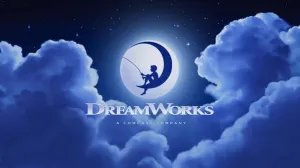For the better part of 30 years, the creatures featured in the Jurassic Park and Jurassic World franchises have been what most audiences picture when they think of living dinosaurs, but all six of these films require some leaps in logic and scientific accuracy if you merely want to enjoy these adventures as pieces of entertainment. Director of Jurassic World and Jurassic World Dominion Colin Trevorrow has even expressed that he aimed for this latest movie to honor scientific details that hadn’t yet been confirmed with the original films, with Utah state paleontologist Jim Kirkland recently addressing with Variety what the series gets right about the beasts.
Videos by ComicBook.com
Kirkland first addressed why the original Jurassic Park depicted the Velociraptor as being a large beast, despite actually being roughly the size of a turkey. What audiences have seen in the franchise as “Velociraptors” actually fall more in line with the Deinonychus.
“There had been a book that lumped Deinonychus into Velociraptor, which is stupid,” Kirkland shared with the outlet in regards to the 1988 book Predatory Dinosaurs of the World. “[Original author] Michael Crichton used that book in his research. Now, he didn’t know any better. So he based it totally on Deinonychus antirrhopus.”
Original director Steven Speilberg became aware of the issue while developing the film, though envisioned his films using the larger animals, instead opting to be inspired by the then-recently discovered bear-sized Utahraptor.
“We did the press release during the late summer of ’92,” Kirkland pointed out. “Basically, we put it out so it’d be out Tuesday for the New York Times science supplement. And that was the day Desert Storm broke loose. So it went flat on its face. But at the end of the year, Time magazine made it the seventh top science story of the year. Discovery magazine put it on the cover.”
Steve Brusatte served as the paleontology consultant on Dominion to be able to answer any questions the filmmaking team had. One of the biggest changes made with Dominion is featuring dinosaurs with feathers.
“I’m really pleased with the feathers,” Brusatte expressed. “That’s the biggest thing of all because we’ve known that dinosaurs had feathers for a long time, but they haven’t made it into Jurassic World, frustratingly. Or Jurassic Park. The thing that always annoyed me was definitely the feathers.”
Given that Jurassic Park was released before scientists determined dinosaurs likely had feathers, Brusatte was lenient about the film series never exploring that fact, but Kirkland was a bit more frustrated that cinematic decisions couldn’t have corrected the issue.
“The whole thing drove me nuts.” Kirkland confessed. “They could have just said, you know, ‘Oh, originally we were using frog DNA as the template. Now we use chicken DNA, so we get much better dinosaurs.’ And then you get feathered dinosaurs! And you’ve explained it in one sentence!”
In addition to the feathers, Kirkland also pointed out that he takes issue with the depictions of the raptors’ intelligence.
“They show them a little too smart,” he detailed. “I mean, at the time they lived they were the smartest animal on the planet. They had a brain the size of a cat, so a pretty decent brain. You might say, they have the intellect of an opossum. Which, you know, they’re capable of learning that a human is their friend, and they have certain abilities. But they’re not doing higher math. And they’re not as smart as, say, a wolf.”
The scientific community seems to continually debate the behaviors of the Tyrannosaurus rex, with some claiming it would have acted similarly to what is seen in movies, while others think the T-rex would have been a scavenger. Kirkland confessed that there’s no arguing that the animal was an impressive beast, though its territory wouldn’t have seen it colliding with animals we’ve seen it face in the movies.
“T-rex was certainly the apex predator in its environment,” Brusatte recalled. “It was by far the biggest meat eater in that ecosystem. Now, in other parts of the world, there were other dinosaurs that were top predators. And so in real life, you know, T-rex would have never met Giganotosaurus, which was from South America and also lived several tens of millions of years earlier in time.”
Jurassic World Dominion is in theaters now.
What do you think of the remarks? Let us know in the comments!








